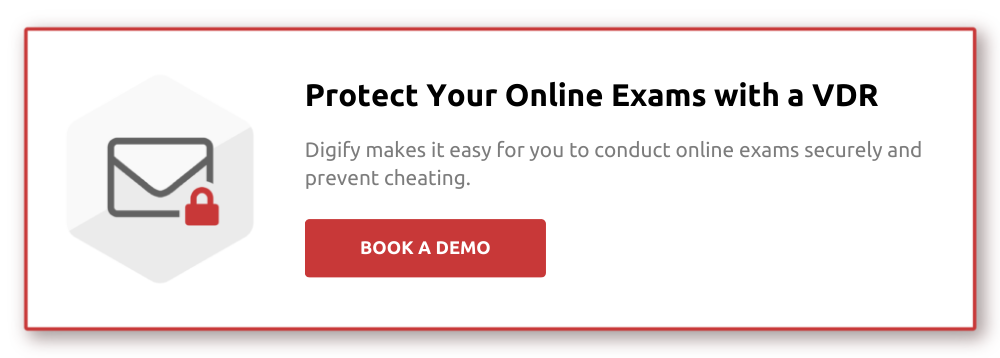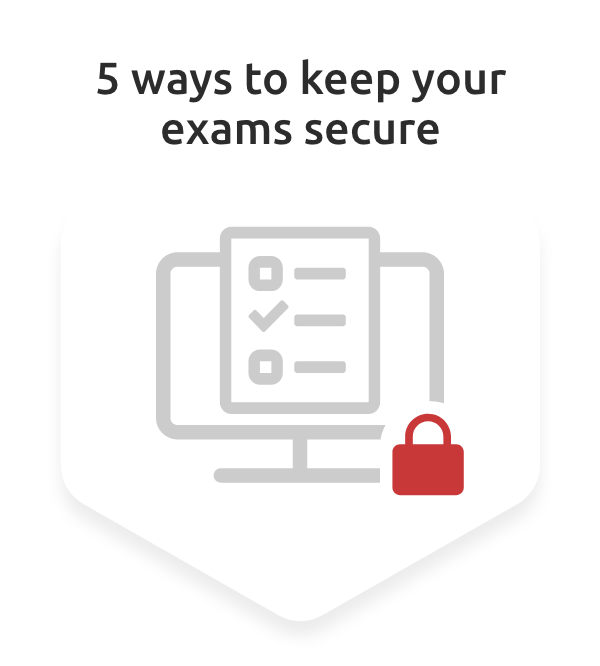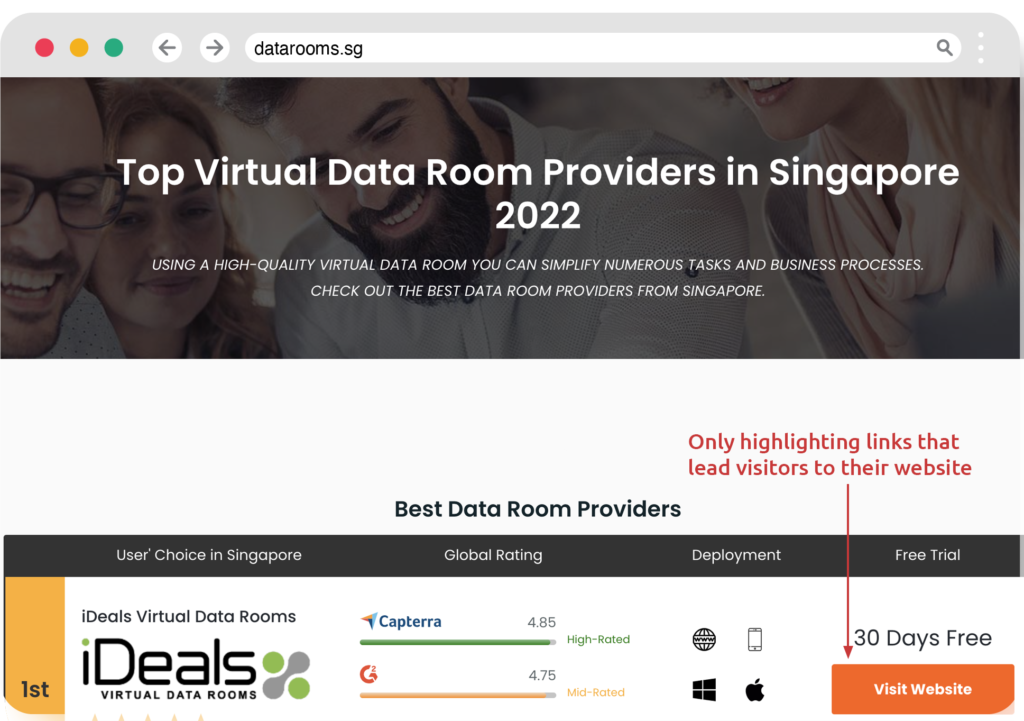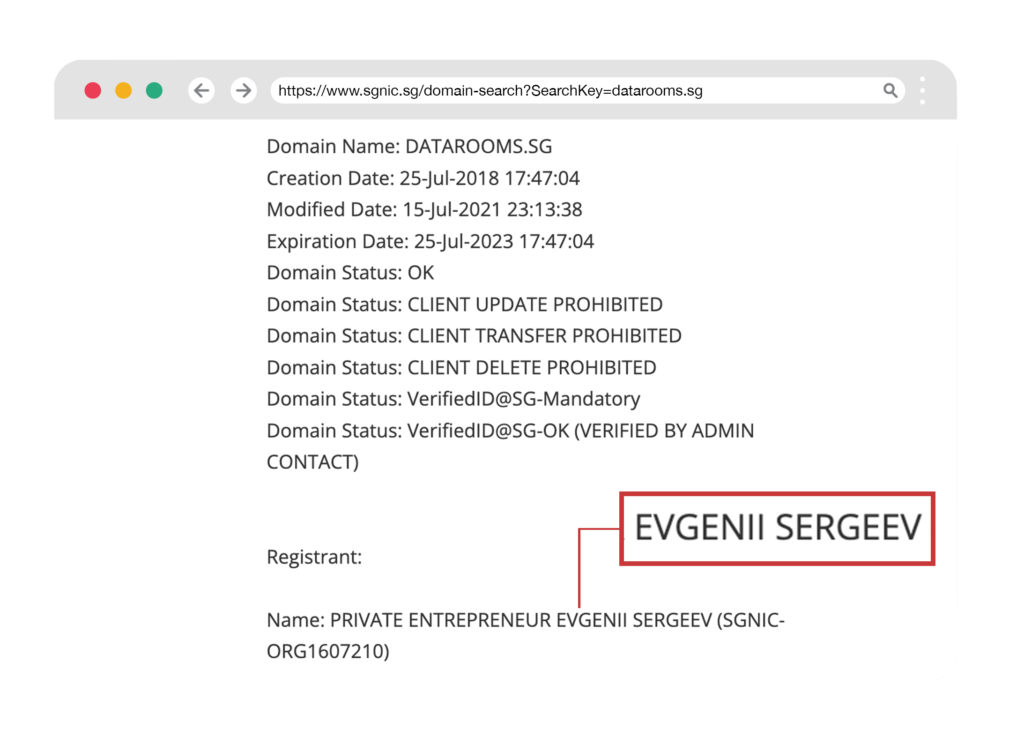It is convenient to conduct online exams. As a private learning center or educational institution, you don’t need to worry about location constraints as students can do the exam anywhere. Provided that they have access to a computer with an internet connection, it is also relatively easy and cheap to conduct online exams. However, with added convenience come increased challenges, and the most common one is cheating.
Why is cheating such a big concern?
The purpose of exams is to evaluate the student’s ability fairly. If the exam’s fairness is compromised, the exam results would be inaccurate in reflecting their actual ability. Besides the wrong evaluation of students’ learning progress, cheating also poses other concerns that you need to be aware of as an educational institution.
One of the main concerns is content leakage, which is the unauthorized distribution of the exam documents such as questions bank to third parties. When that happens, it can hinder the integrity of the online exams and your unique content. There might be various reasons why content leakage occurred, and it may be due to a lack of supervision or faulty in the tools used during online exams. Nevertheless, those can be the contributing factors that might have further perpetrated students to cheat.
How do students cheat during online exams?
Jotting down math formulas on your palms has become a thing of the past. Nowadays, students have found clever ways to cheat, and in most cases, taking advantage of the available technologies around them.
Screen sharing to another computer
It doesn’t take much for a student to do screen sharing during online exams. Because the exams are conducted remotely, the student can have a friend to log in from another computer elsewhere to access the exam questions and provide assistance or answers. Students have also used other software such as Team Viewer, where a third party can take control of the student’s computer remotely to do the exam on behalf.
Using advanced electronic devices
High-tech devices are not only for secret agents on espionage missions–they’re also used by students to cheat during exams. Students have been using Micro Bluetooth-powered earbuds, invisible smartwatches, and augmented reality glasses to aid them during exams. Especially during online exams, where supervision via webcam might not be as effective and visually transparent, these gadgets may appear normal and practically undetectable. Students can also hide additional devices under the table.
Keeping notes on smartphones and using mobile apps
Students have been using smartphones to keep exam-related notes such as formulas and definitions that they can secretly look up to during online exams. Also, mobile education apps such as Cymath and Brainly can help solve exam problems quickly. For example, you can post a question on the apps, get the automated recommended answers instantly, or get real-person answers within minutes.
Faking identities to get third-party assistance
An exam facilitator or proctor can authenticate the students during in-person exams. However, it is much harder to ensure that only the right parties can take the exams when it’s online, especially those that are not proctored or supervised. Even when there is a proctor monitoring via webcam, students can have other individuals impersonating them by showing the rigged identifications such as fake driver’s license or school identification card which may not be as easy to authenticate virtually.

How to minimize cheating during online exams?
The most common solution is to use exam proctoring software. It is specifically designed to enable students to take online exams securely with features such as automated monitoring, ID verification, and computer lockdown. However, there might be technical complexities and high costs associated with this solution.
As an alternative to exam proctoring software, some schools have adopted a more convenient and affordable way to test students. For instance, questions can be sent via document attachments securely by email. Students can then be supervised throughout the exam duration using a webcam from the moment they access the questions.
To protect the integrity and increase security of online exams, a possible way is to add a document security solution like Digify into the mix:
- Limit who can access the question and revoke access anytime. You can also add email verification as an extra layer of security to ensure authentication.
- Self-destruct the exam documents within a set time to maintain the fairness of the exam duration for all test takers.
- Prevent unauthorized access and distribution of the exam questions with restricted forwarding and downloading.
- Reduce the document viewing area with screen shield and watermarked filter to discourage screenshots during online exams.
- Identify suspicious third-party assistance with tracking logs that reveal the location and IP address of the user.
Find out more about a cheap and easy alternative to online proctoring.
In conclusion, the lack of in-person supervision due to location constraints combined with the available technologies has made it easier for students to cheat during online exams. Knowing the creative ways students cheat can help you identify the right solution and mitigate security concerns.
If you’re ready to see how Digify Document Security can help you protect your exam documents and minimize cheating, start your 7-day free trial.












